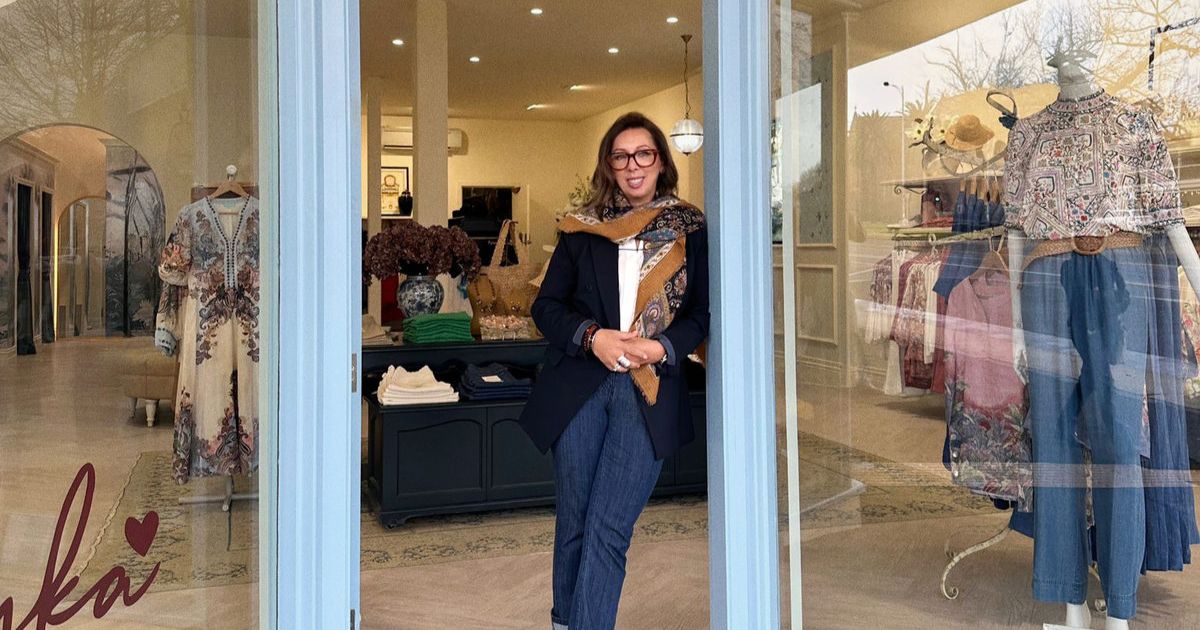Roland Rocchiccioli

Joe and Rena Scolari. Joe was killed when a 6x4-piece of timber fell into the mine shaft and struck him on the head. He was much mourned.
Time-and-tide take the edge from our childhood recollections; however, there are those elements which never fade…
Of the myriad treasured remembrances from Gwalia, an Australian/European village on the edge of the Great Victoria Desert in Western Australia, music and food are the components I recall, most vividly. Grapes, figs, and watermelon, and spaghetti and rigatoni featured prominently in my childhood diet. My mother, Beria, made a superb rooster risotto.
Nurtured by the dry, desert heat, the grapes grew in such profusion. Many of the Italians and Yugoslavs had vines around the house. Joe Scolari had an 8-x 6-feet high, 20-feet long pergola at the front of their house. With trunks like trees, they were the best vines in the town. In summer they were ladened with dozens of huge, pendulous bunches — black and white. Also, he grew various stone fruit and citrus trees down the side of the house. In the pruning season Joe was much in demand across the town.
The favoured varieties were Lady Finger, Wortley Hall, Waltham Cross, Sweetwater, and black and white Muscatels. The vines at the back of my father’s house where he lived with me and my sister were exceptional. An unknown variety, the berries were blue/black, with the most superb taste. He watered them morning and night, and was none too pleased if he noticed a tell-tale stem where a ripening berry had been picked from the bunch in anticipation.
Collins’ fruit shop was, for many years, in Toorak Road, South Yarra. They sold many of the now-unfashionable, seeded, grape varieties which have mostly disappeared from the shelves. The demise of the greengrocer shop has left us with the inedible supermarket range of seedless, tasteless, juiceless varieties, some of which are imported! Even the Prahran market does not sell the once poplar, wide-range of choice.
In Gwalia, Mazza’s sold grapes from the Sandalford Estate in the Middle Swan Valley. Serendipitously, the estate was on the other side of the Swan River, a short distance from where I went to boarding school. The grapes were packed in one-pound, aerated plastic bags, and were especially popular with the European, single-men working on the Sons of Gwalia goldmine.
Part of my Christmas present was a box of Muscatels and almonds. It was a tradition. The Muscatels were packed in a rectangular box wrapped in cellophane and weighed about 12-ounces. The top featured a bunch of black grapes, part of which was a cut-out exposing the dried fruit. They were bought from GJ Coles Variety Stores, in the days before the illustrious retail name became synonymous with disgraceful greed and price-gouging.
After she married, my sister lived in a house with two gigantic figs trees — black and white. Such was the abundance, the crows feasted, and the fruit rotted on the trees. My mother made superb, delicious black and white Muscatel grape jam!
My father was a pastore and agricoltore before he came to Australia in 1926. He had a superb vegetable garden, and his seeded, elongated striped watermelons cracked like stockwhips when they were cut. The flesh was bright pink, sweet, and juicy! To prevent the hot ground scorching the rind, he turned the melons regularly. I yearn for such watermelons —with seeds.
Mrs. Alessio made the tiramisu for her daughter Carmel’s wedding breakfast. Aged 10, I thought I had died and gone to heaven!
Roland joins Brett Macdonald radio 3BA 10.45 Monday morning. Contact : [email protected]

















